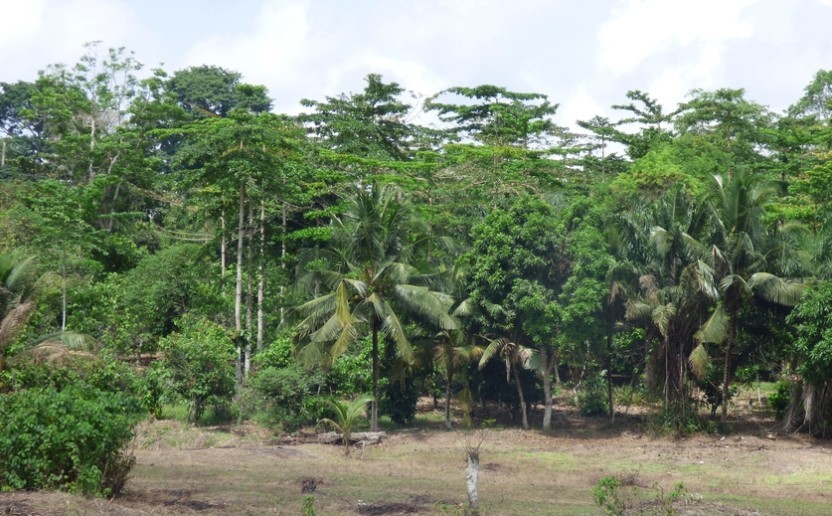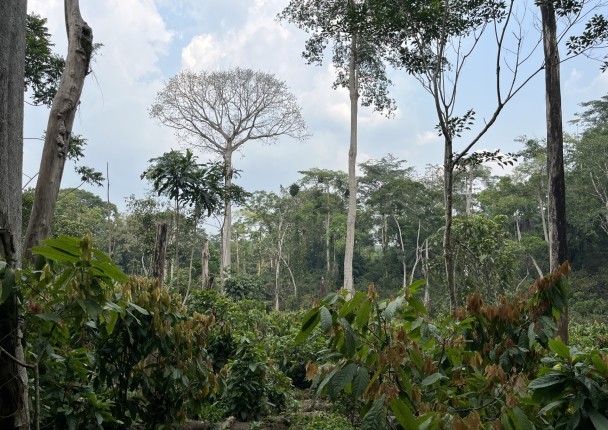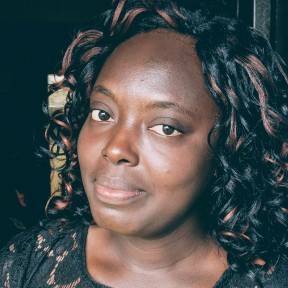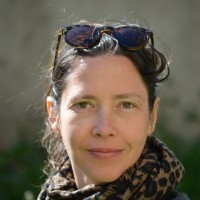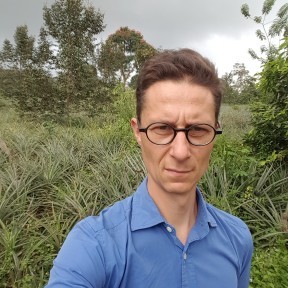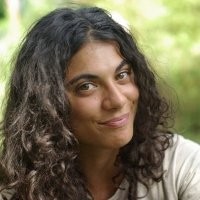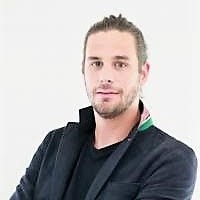CACAOFOREST - Local support for sustainable agroforestry
Main goals
Supporting agroforestry transitions on cocoa farms in Ivory Coast through local farming advice.
Specific objectives
SO 1 - To help promote agroforestry cocoa in Côte d'Ivoire and support changes in producers' practices towards economically sustainable agro-ecological practices that not only preserve resources but also guarantee quality cocoa and regular production.
SO 2 - Accelerate soil restoration on cocoa plantations using a participatory research-action approach.
SO 3 - Improve training systems for agricultural advisers to provide appropriate, jointly-constructed support.
Financial Partners : VALRHONA, Groupe CÉMOI, Ecotone, Revillon Chocolatier - Groupe Savencia, Café Chocolat Voisin, De Neuville - Groupe Savencia, Carambar & Co, La Maison du Chocolat, Le Relais Des Desserts, Terra Isara et Weiss Pralines and Chocolate.
Beneficiaries
Direct: Cocoa producers, professional organisations and rural communities.
Indirect: Cocoa sector companies, Ivorian government.
Results
R.1.1:
Stakeholders develop knowledge on the diversity of forest species present in FAS and offer training and identification tools on forest recrudescence.
R.1.2:
Technical itineraries for the agroforestry transition, co-constructed with producers, are put in place and enable participatory technical monitoring.
R.2:
Research is developing knowledge of cocoa farm soils, developing characterisation tools and identifying technical solutions, co-constructed with producers, that promote the restoration of soil fertility in cocoa plantations.
R.3:
Training modules focusing on production system diagnosis methods, diagnosis of farming practices and the mobilisation of technical solutions that can be adopted by farmers have been introduced to improve the attitude of agricultural advisers.
Activities
Component 1:
Agroforestry practices
1)Introduction of forest trees.
2)Support for the rehabilitation of old cocoa plantations.
3)Training in the identification of forest recruits.
4)Species multiplication trials.
Component 2:
Cocoa farm soils
1)Producers' perceptions of soil management and collection of in situ soil data.
2)Construction of soil diagnostic tools.
3)Setting up a network of farmers to test agroecological practices.
Component 3:
Improving the training system and the attitude of agricultural advisers:
1)Develop training modules.
2)Training workshops for technicians.
Related documents
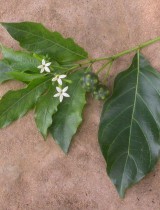
The earth speaks - Understanding soil for better farming (french)
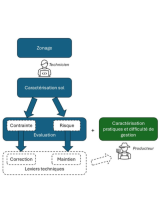
Summary - Master's thesis : Description and characterisation of cocoa producers' perception of soil quality (french)
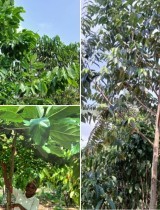
Master's thesis - Description and characterisation of cocoa producers' perception of soil quality (french)
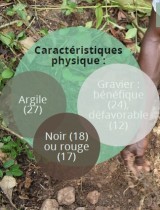
Note - Progress and preliminary results for the contribution to an agro-pedological guide co-developed with cocoa farmers in Côte d'Ivoire…
Related people
Rolande Kouassi Ettien
A botanist by training, Rolande holds a Master 2 in Plant Systematics, Ecology and Biodiversity. She joined the Nitidae team in 2018 and mainly brings her expertise in the areas of agroforestry (SAF cocoa trees, floristic inventories, ecosystem services, etc.), organic agriculture and fair trade (cocoa certification reference EOS, FFL label, documentary review and audit). After holding the position of Agro-Botanist within the Mé REDD+ Project, she is now in charge of coordinating the activities carried out by Nitidæ within the Cocoa4Future and Terri4Sol projects.
See moreAnaïs Chotard
A graduate of ISTOM and a Master's degree in Natural Resource Management in a tropical environment, she has more than 15 years of international experience in structuring responsible value chains (particularly in West Africa) and in France. She has a good understanding of quality approaches, organic and fair trade certifications, and agroecology and agroforestry production systems. She has worked within cooperatives, commercial companies, training structures, research and NGOs, which allows her to have a good understanding of the challenges of the value chains. She joined the team in 2024, and takes part in studies and projects, particularly on shea and for more inclusive sectors for women and young people.
See moreCédric Rabany
Holder of a Master of Science, "Agricultural Engineer and territories development" from the Institut Supérieur d’Agriculture (ISARA Lyon), he brings his expertise in agro-food/agricultural sectors' analysis and development, strengthening of supplychain actors (producers, private/public actors, agro-food industries...), socio-economic analysis of agricultural chains and his great knowledge of companies in these markets
See moreNoémie Rullier
Holder of an Engineering diploma in Agronomy, specializing in Sustainable agricultural & Agri-Food systems for the South, from Montpellier SupAgro- Institut des Régions Chaudes (IRC), she brings her expertise to support technical changes and development processes in rural area; to support farm advisory, training engineering and plant biology research
See more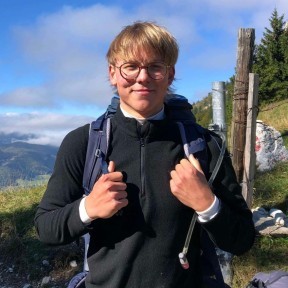
Simon Parent
Holder of an engineering diploma in Agronomy from the Institut Supérieur d'Agriculture (ISARA) in Lyon, with a speciality in Agroecological Innovation and Transition, he is responsible for developing and testing simple, reproducible tools adapted to the field in order to strengthen the analysis of farming practices, contribute to the co-construction of appropriate agroecological technical levers, and guide technical decisions at the level of smallholder plots in Côte d'Ivoire
Renaud Lapeyre
PhD in environmental and development economics (ENS Cachan, University of Versailles St Quentin-en-Yvelines), he is expert in conservation finance, including through ecotourism and innovative financial mechanisms (PES), and he specialised in international cooperation programs. He worked several years in Namibia, Morocco, and Kenya. In 2012, he joined Iddri (SciencesPo Paris) as senior researcher in biodiversity economics, before joining WWF France in 2017, as a manager for public sector partnerships. At Nitidae since September 2021, Renaud was PRM2 Project Manager from 2021 to March 2024
See moreCACAOFOREST - Study for the launch of t…
